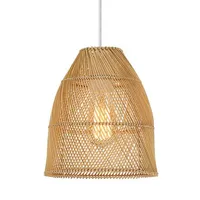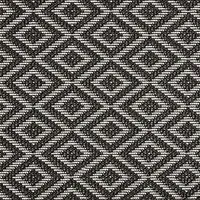How do I make my outdoor dining space feel cozier? The 5 secrets to more intimate entertaining in your backyard
Want an outdoor space that draws you in and feels comforting and cozy on nights spent dining alfresco? These are the 5 things that will make all the difference
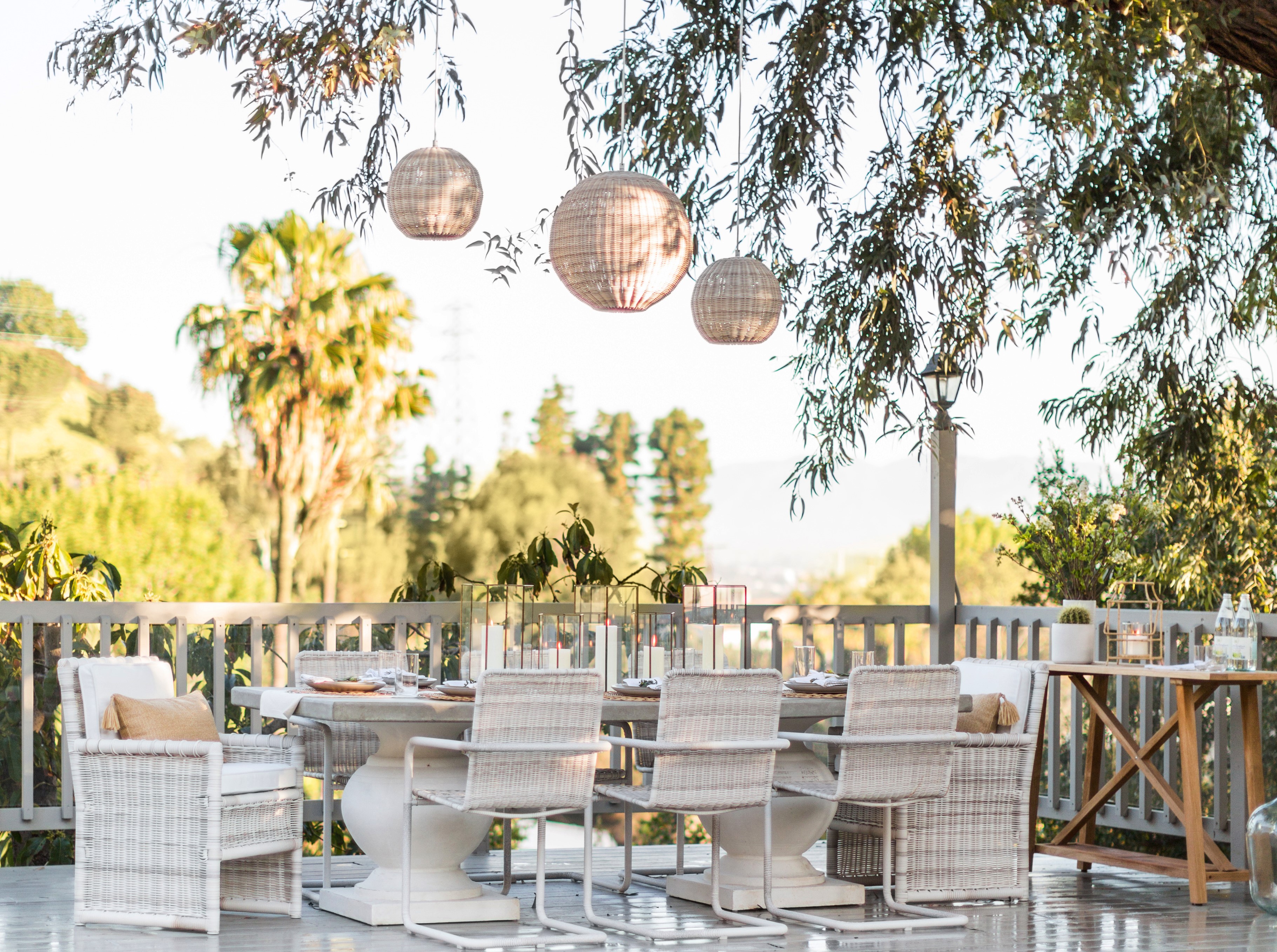

Outdoor dining is one of the joys of summer, and if you've got beautiful backyard, there's not better way to use it than with a spot for alfresco eating. However, sometimes a backyard dining space can feel a little uncomfortable compared your dining room inside the house, but the last thing you want to do is abandon your outdoor dining experience and retreat back indoors.
However, landscape designers are increasingly making these outdoor spaces feel cozier, embracing indoor-outdoor living trends that recreate the best bits of an indoor dining room for your backyard. To help you with achieve this feel, we reached out to top experts who suggested the right lighting, furniture, and fabrics to make the backyard a more welcoming spot for entertaining outside.
1. Choose a covered spot
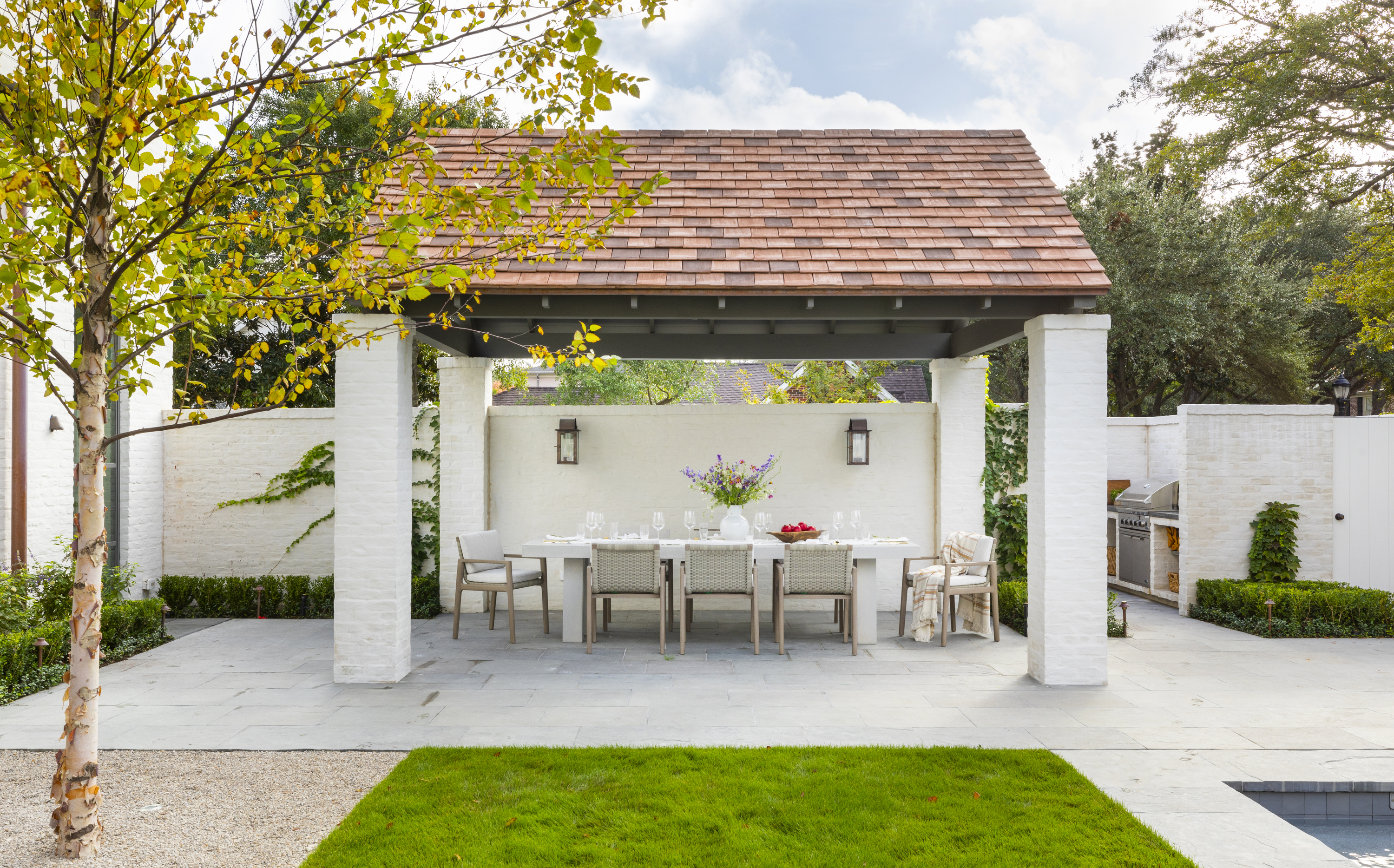
To create an enveloping feel, and to give your dining area a distinct, private vibe, consider adding a roof above or placing the dining under a pergola. Even shades for patios can be used to cover your outdoor seating. Not only will this give the dining a cozy feel, but it will also save the furniture from the elements.
'The exterior aesthetic of this Houston home feels distinctly Mediterranean,' says designer Marie Flanigan, principal of Marie Flanigan Interiors. 'The soft white exterior paired with the clay roof’s varied colors and terracotta tones set the scene for a gorgeous European-inspired courtyard that’s a true urban escape.'
2. Introduce indoor-like lighting
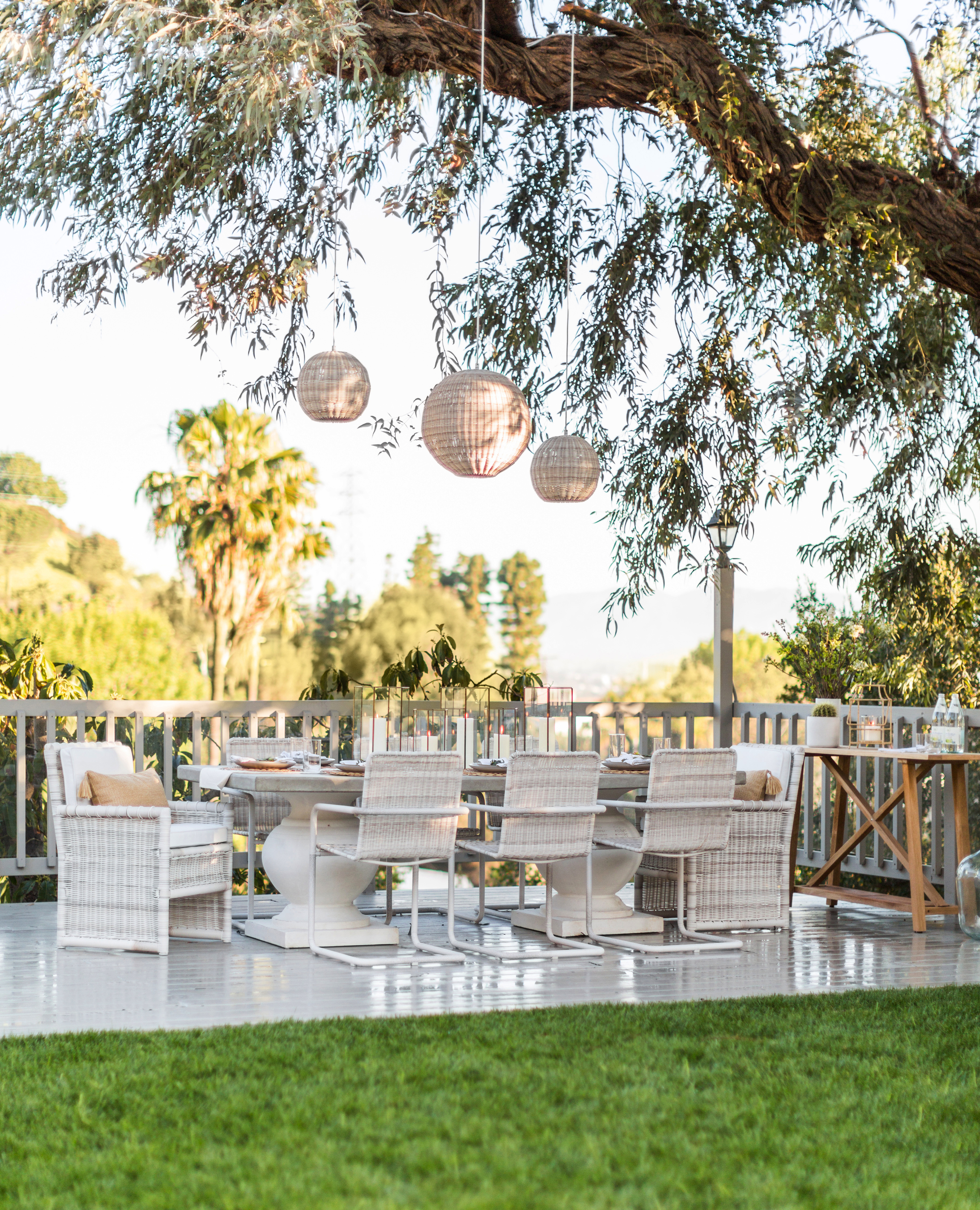
A great way to add a charming touch to your dining is with outdoor tree lighting. Suspended lights not only illuminate the space but also create a vibe that encourages people to sit around for longer.
'The ultimate vibe of this Southern California home was whimsical, laidback, and of course, cool,' says Marie. 'Hanging lighting from the tree was a natural choice, as the tree branches lend themselves perfectly to lighting the alfresco scene. The sun-bleached raffia pendants create an orb-like effect that doesn’t disrupt the backyard’s natural splendor.'
Hanging lights aside, lamps too are a great option. 'I adore using outdoor floor and table lamps,' says Kashi Shikunova, director of Yam Studios. 'They not only add a touch of elegance but also create a soft and enchanting ambiance during the evening hours. What's even better is that many of these lamps are battery-powered, allowing for flexible placement wherever you desire'
The Livingetc newsletters are your inside source for what’s shaping interiors now - and what’s next. Discover trend forecasts, smart style ideas, and curated shopping inspiration that brings design to life. Subscribe today and stay ahead of the curve.
Choose this organic pendant light, crafted in natural rattan, and add a stylish touch to your outdoor dining.
3. Cozy up a table with textiles
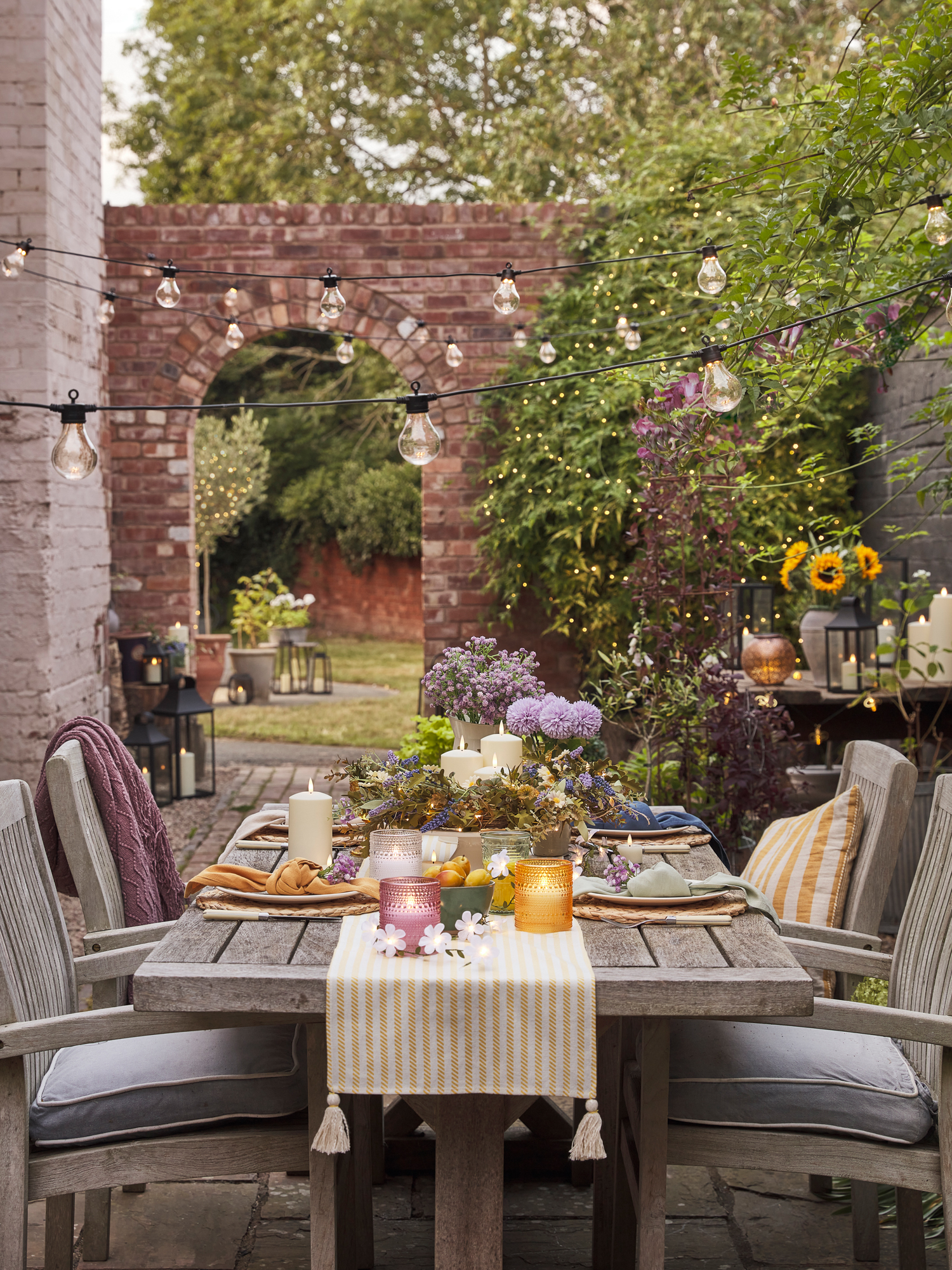
Make your outdoor seating deeply comforting with throws, pillows, and more. Add a table runner to the dining, include cushioned seats, and give a touch of elegance and care to its look.
Outdoor fabrics will not only add a touch of color to the space but also inject a wonderful layering, giving your seating depth and dimension.
'When it comes to outdoor fabrics, the key lies not so much in the type of fabric, but in its quality and manufacturing process,' says Kashi. 'High-quality outdoor fabrics which can withstand harsh outdoor conditions are typically manmade and can be composed of acrylic, polypropylene, or even recycled plastic. Although these materials may not sound particularly comfortable, a reputable outdoor fabric supplier can create truly remarkable fabrics that feel soft and natural. It's always a good idea to visit the showroom and experience the fabrics firsthand.'
4. Add a rug
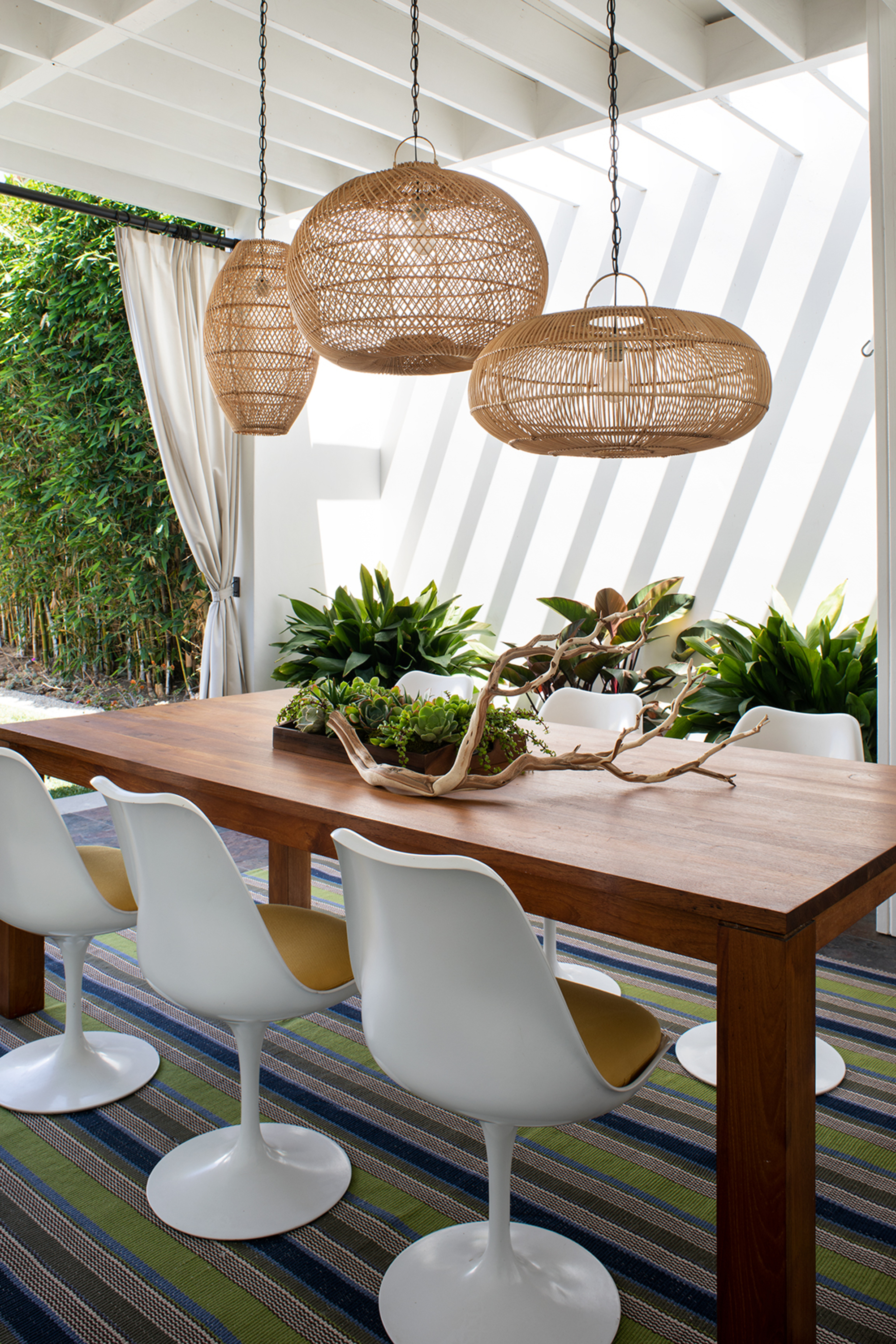
When designing the outdoor dining area, consider this space as important and deserving of all things good; just like your indoor dining. Among some of the things that people omit when decorating the outdoors is a rug. While usually, the concern is that a rug may not be able to withstand the weather conditions outside, when chosen wisely, this element can inject color, define a seating area and warm up your outdoor living room or dining room.
A jute rug can be a great option for the outdoors as it doesn't catch mold nor does it fade easily. Polypropylene rugs are known for their durability, strength, and comfortable texture. These are also water-resistant. Polyester rugs are fade and stain resistant. And finally, nylon is often woven with olefin to create a soft, weatherproof blend, ideal for the outdoors.
'Just like outdoor fabrics, outdoor rugs are typically made from durable manmade fibers to withstand the outdoor environment,' says Kashi. 'Skilled manufacturers can create stunning outdoor rugs that not only look amazing but also feel incredible underfoot. Even for areas that are covered say under a pergola they still are exposed to open air, it is advisable to invest in a high-quality outdoor rug that can be easily washed or wiped clean.'
Consider this geometric design rug, perfect for adding depth and dimension to your outdoor seating.
5. Choose the most comfortable seating you can
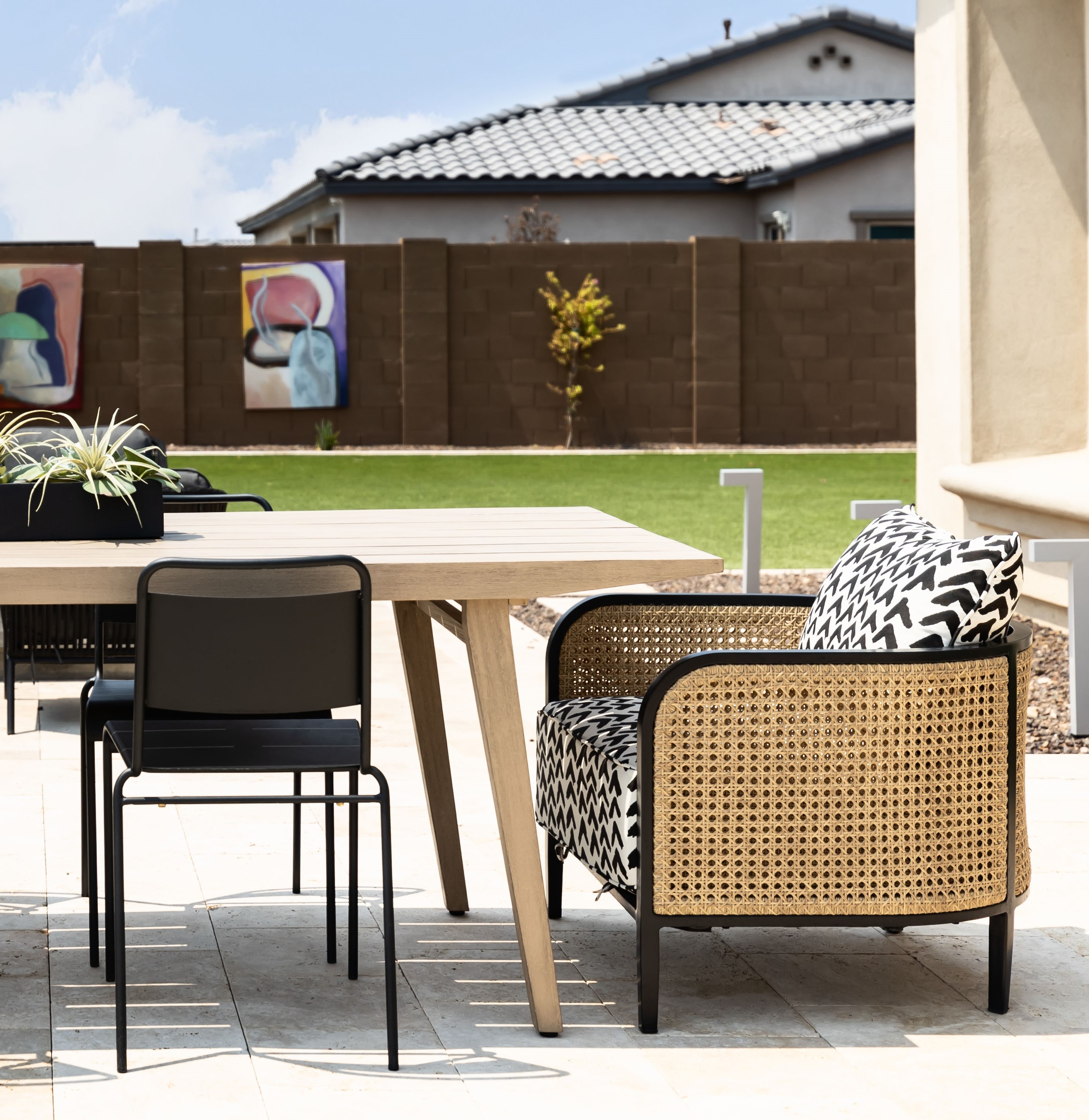
When it comes to modern outdoor furniture, the best bet is rattan, wood, or resin. These materials can last long, without breaking, fading, or chipping.
If you're choosing teak furniture, consider FSC-certified teak as it's environment-friendly and always looks on-trend. If you love a silvery look on your pieces, you could consider pre-weathered teak. Do remember to seal all wooden furniture at least once a year to make it look fresh and as good as new.
'It’s best to use wicker resin material or anodized aluminum as they handle the weather better than other options, requiring less upkeep over the years,' says Jane Lockhart, founder of Jane Lockhart Design. 'If you love your pieces, always cover them when not in use or put them away during the harshest weather season.'

Aditi Sharma Maheshwari started her career at The Address (The Times of India), a tabloid on interiors and art. She wrote profiles of Indian artists, designers, and architects, and covered inspiring houses and commercial properties. After four years, she moved to ELLE DECOR as a senior features writer, where she contributed to the magazine and website, and also worked alongside the events team on India Design ID — the brand’s 10-day, annual design show. She wrote across topics: from designer interviews, and house tours, to new product launches, shopping pages, and reviews. After three years, she was hired as the senior editor at Houzz. The website content focused on practical advice on decorating the home and making design feel more approachable. She created fresh series on budget buys, design hacks, and DIYs, all backed with expert advice. Equipped with sizable knowledge of the industry and with a good network, she moved to Architectural Digest (Conde Nast) as the digital editor. The publication's focus was on high-end design, and her content highlighted A-listers, starchitects, and high-concept products, all customized for an audience that loves and invests in luxury. After a two-year stint, she moved to the UK and was hired at Livingetc as a design editor. She now freelances for a variety of interiors publications.
